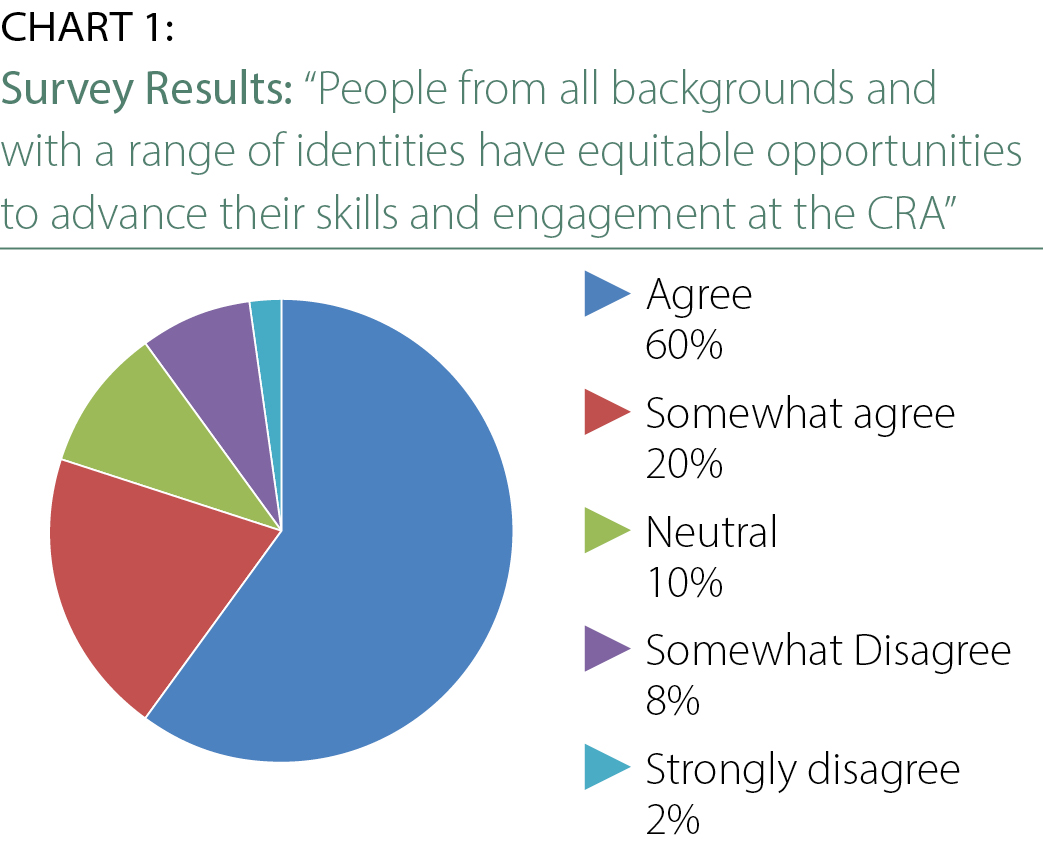Spring 2025 (Volume 35, Number 1)
Survey Results: Equity, Diversity, and Inclusion (EDI)
Download PDF
For this issue’s Joint Count survey, the CRA asked its membership for their perspectives on EDI as it relates to the association and the Canadian rheumatology landscape. A total of 86 responses (out of a possible 578 were received), equating to a response rate of approximately 15%.
In the first part of the survey, members were asked to rate the CRA on various aspects of equity, diversity and inclusion. When asked to rate the following “People from all backgrounds and with a range of identities have equitable opportunities to advance their skills and engagement at the CRA,” 60% were in complete agreement (as compared to only 43% in Fall 2021, when a similar survey was deployed). See chart below for a more detailed breakdown.

When asked “What does equity, diversity and/or inclusion in the context of the CRA mean to you?” there were 38 wide-ranging responses, varying from positive reactions to criticisms. For many, in the context of the CRA, it means that “all individuals should feel valued—no one more than anyone else. The CRA should be a home to support excellence in rheumatology care for all Canadians,” as one member wrote. Another member commented that they “would like EDI to be embedded in the core pillars of the CRA, so that all members are welcome to embrace their differences and have equal opportunities to develop and bring strength to the CRA.”
Others felt that the organization could do a better job of letting the membership know what leadership positions are available and how to become CRA President, as an example, and also that more programs should address under-represented groups in rheumatology. On the flip side, four respondents were quite critical of EDI in general. Criticisms include that EDI is divisive and merit-averse, and out of scope for the CRA's mission.
When asked what additional actions the CRA could take with respect to increasing EDI, there were many suggestions and comments:
• In terms of equity, the requirement of travelling to the meeting for CRA Board members and how this is limiting to those with young children should be addressed
• Expand CRA Nights to other meetings beyond the US (e.g., EULAR, BSR, APLAR)
• Include more support for early career physicians
• Ensure/improve francophone representation and bilingualism (a frequently repeated comment)
• Encourage more recruitment of underrepresented identities in rheumatology training via grants, scholarships, etc.
Reflecting the divisions currently evident in society at large, a number of commenters questioned the value of EDI programs generally, and of the CRA’s involvement in EDI specifically.
The CRA EDI Task Force is evaluating these results.
For any questions or feedback, please reach out to
info@rheum.ca.
|




